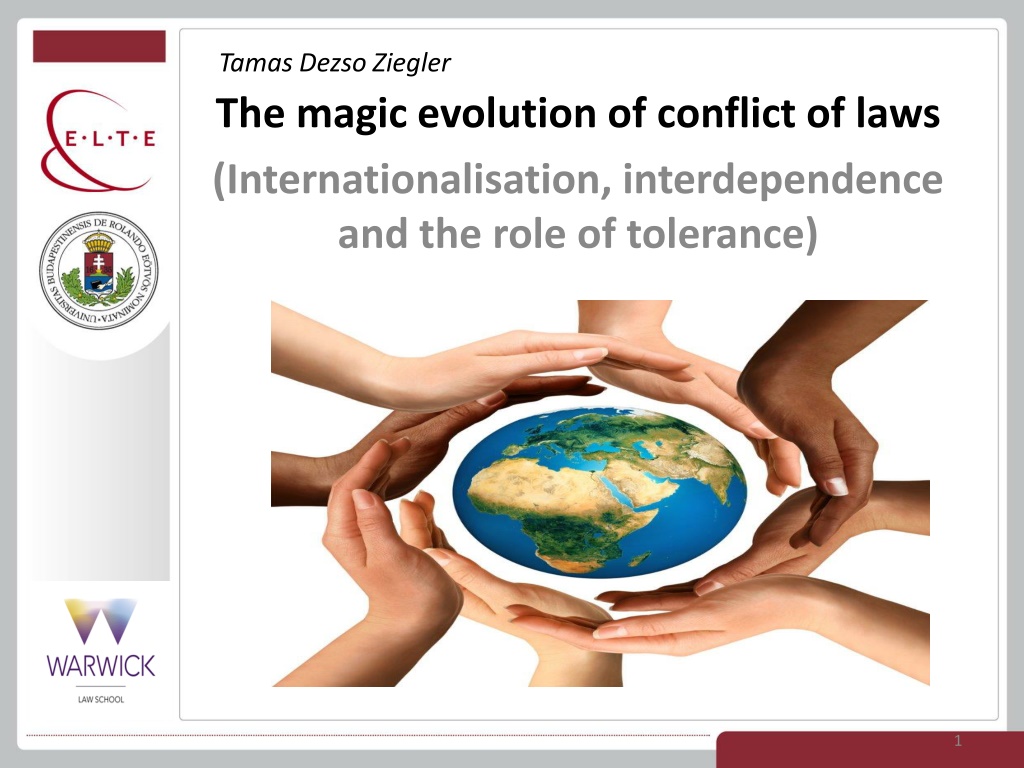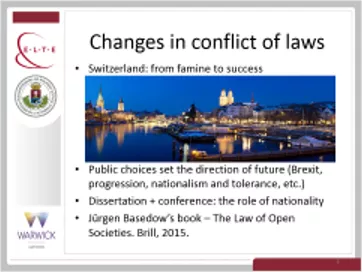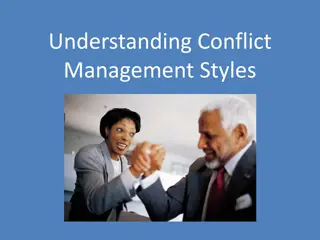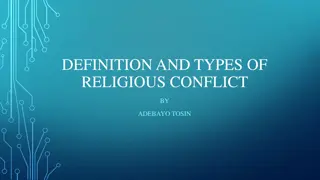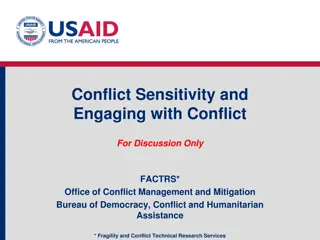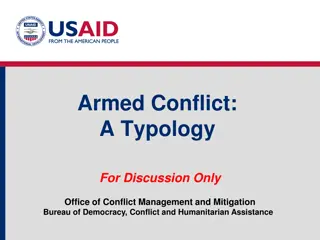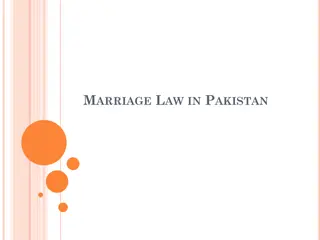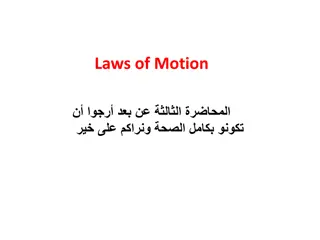The magic evolution of conflict of laws
The evolution of conflict of laws, from Switzerland's transformation to the impact of interdependency and nationalism on global relationships. Delve into the concepts of open and closed societies, and analyze the trends of interdependency, protectionism, and isolationism in the modern world.
Download Presentation

Please find below an Image/Link to download the presentation.
The content on the website is provided AS IS for your information and personal use only. It may not be sold, licensed, or shared on other websites without obtaining consent from the author.If you encounter any issues during the download, it is possible that the publisher has removed the file from their server.
You are allowed to download the files provided on this website for personal or commercial use, subject to the condition that they are used lawfully. All files are the property of their respective owners.
The content on the website is provided AS IS for your information and personal use only. It may not be sold, licensed, or shared on other websites without obtaining consent from the author.
E N D
Presentation Transcript
Tamas Dezso Ziegler The magic evolution of conflict of laws (Internationalisation, interdependence and the role of tolerance) 1
Changes in conflict of laws Switzerland: from famine to success Public choices set the direction of future (Brexit, progression, nationalism and tolerance, etc.) Dissertation + conference: the role of nationality J rgen Basedow s book The Law of Open Societies. Brill, 2015. 2
Open societies Karl Popper: The Open Society and its Enemies. 1945. Closed and open societies Closed state: governed by an elite, asks for conformism, have authoritarian leaders, etc. Open society: tolerant, fights against intolerance, democratic system 3
Closed societyies are not based upon tradititional attempt to improve social conditions . Taboos rigidly regulate and domiate all aspects of life The right way is always determined, though difficulties must be overcome in following it. It is determined by taboos, by magical tribal institutions which can never be objects of critical consideration. collective tribal tradition, the institutions leave no room for personal responsibility. (Basedow cites Popper, p. 26.) Based upon the 4
Tendencies on the world Interdependency: states, persons and businesses are connected and depending on each other: Did Milan got closer to Germany? (Ole Lando) Commercial relations got more intensive Continents get unified : NAFTA, South America: UNASUR, ASEAN+6, Africa: Continental Free Trade Area (CFTA) Nationalism got weaker Migration: more people move (however, the % of population is not necessary higher than 100 years before) Swim against the stream: protectionism, isolationism, racism, retrograde politics 5
General observations: extreme fragmentation The Private International Law Hague Conference on EU: explicit rules hidden rules State legislation 6
General observations: role of citizenship fades away Kegel, 1977: The most important connecting principle in German private international law is the principle of nationality 1977, EGBGB (examples): Concluding mariages: if one of the parties has German nationality: german law Obligations: Damages: joint citizenship exception v Rome II joint habitual residence (also: affiliate of a German company made damage to a German citizen abroad: German law) In certain cases: compensation for a damage could not be higher than the provisions set by German law, IF defendant was German Contracts: may chose the country of citizenship USA: domicile was used instead!! 7
Habitual residence gets important EU legislation on choice of law (e.g. Rome I): a contract for the sale of goods shall be governed by the law of the country where the seller has his habitual residence 1980 Rome Convention: most closely connection: residence Definition of habitual residence also changed: permanent interests v. actual stay (important!!!!! You can move freely!!!) party s habitual centre of 8
Jurisdiction: freedom to chose the proceeding court Arbitration: Even against the state! (ICSID, ICC court, etc.) method: banning arbitration against the state Consumers problematic Foreign courts the Hungarian and arbitration: 9
Jurisdiction: Kylie Minogue case (eDate Advertising case) Defamation: Kylie internet and damages: more open approach Minogue case: 10
Jurisditcion: forum non conveniens First: forum non competent Scottish principle moves into English law in the second part of the 20th century EU: Owusu v. Jackson My personal opinon: is against human rights, esp. against access to justice Aresult of (or a compensation for) nationalism? 11
Applicable law: vulnerable people received protection Consumer law provisions Product liability: product makes damage to someone Labour law if a 12
Applicable law Choice of law clauses are available in more situations: for damages (see e.g. Rome II) For family relationships The principle of closer connection and closest connection as an exception got widespread: more freedom for judges Country of origin uncommon principle: 13
Law applicable to contracts: the chaos in the USA Different methods: Classic place of contracting Centre of gravity test (significant contact approach) Better law approach Governmental interest analysis Law of the forum Place of performance Second Restatement: The law of the state/country that has the most significant relationship to the transaction and the parties 14
Recognition and enforcement of judgments International agreements Then: mutual recognition: if the pther country also accepts our judgments Exequatur process: process for the recognition EU: Brussels Ibis: breaks through these rules: automatic recognition (bilateral) special 15
Recognition and enforcement of public documents Extremely important for legal practice: in certain countries signature specimens are necessary if you want to create a company Certain countries did not accept the signatures because of safety reasons Hungary: a public document (e.g. a document apprved by a notary public) can be enforced easier Consulate or Ministries Apostille: special procedures were needed Recently: recognition and enforcement got widespread in the EU 16
Conclusion international Private became a tool and indicator of tolerance and opennes of a society. law 17
